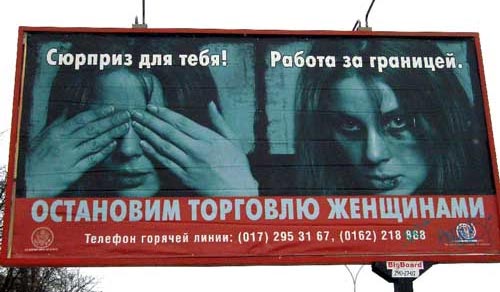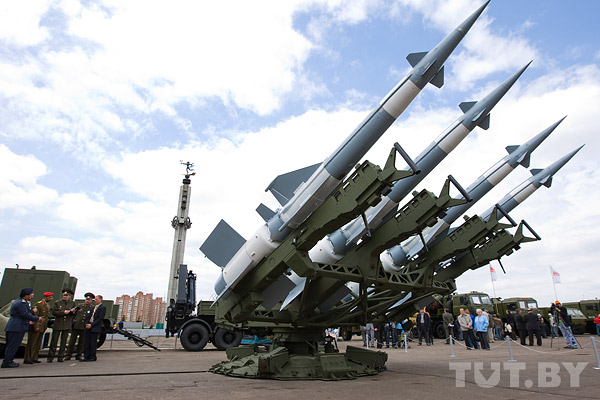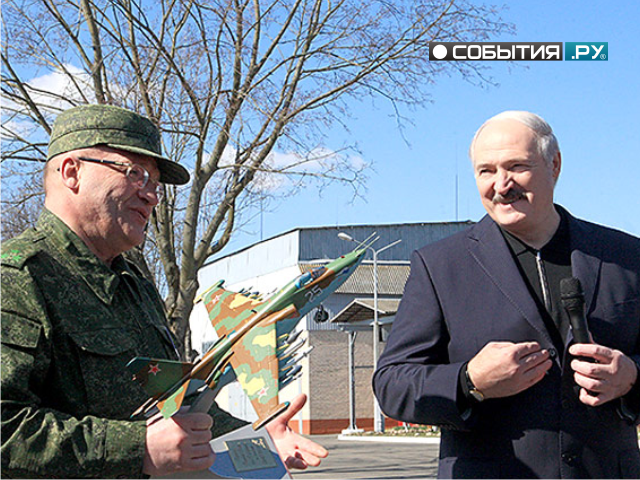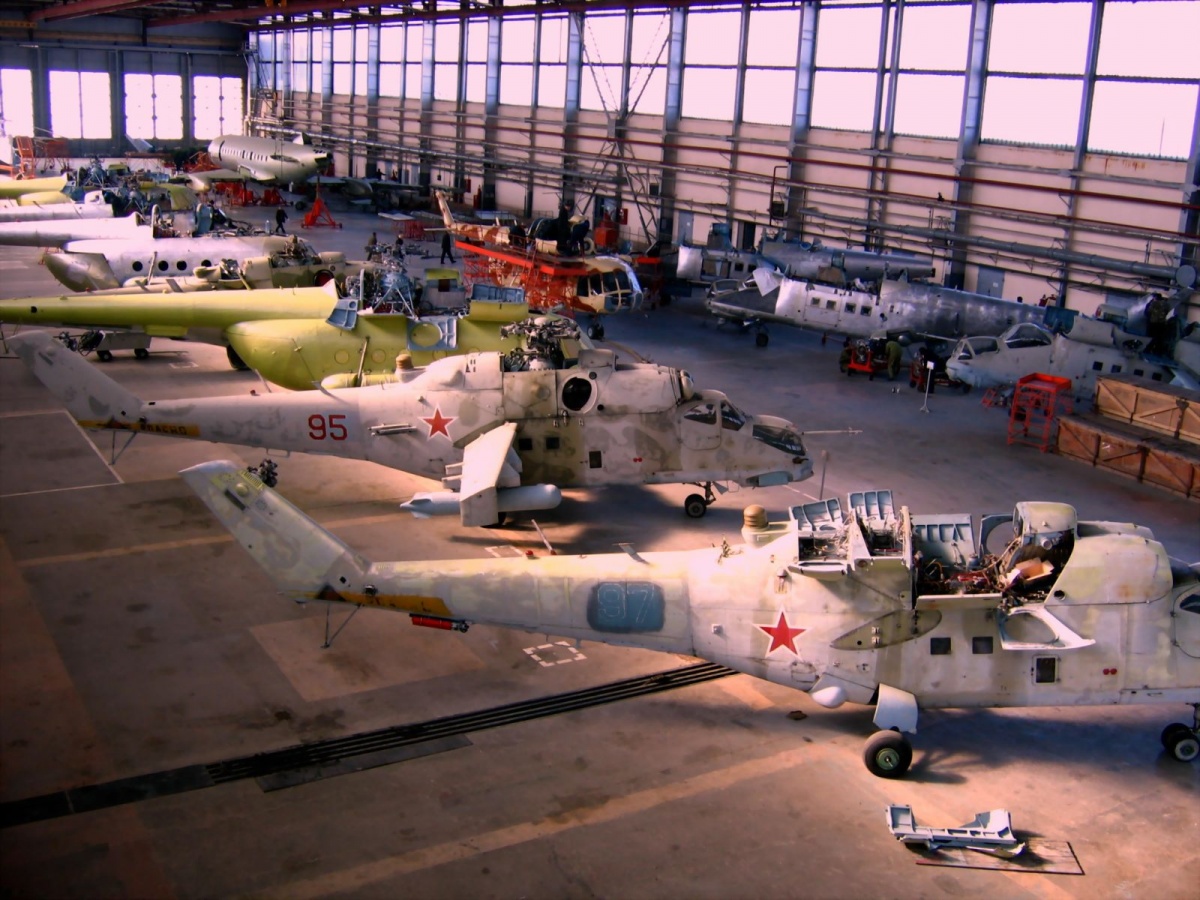Combatting Human Trafficking: Belarus Leads International Efforts

Belarusian ambasador in Budapest participates in #igivehope campaign
On 30 July, the Belarusian foreign ministry held a large-scale commemoration of the first World Day against Trafficking in Persons.
Belarus prides itself upon being the driving force of multilateral efforts to combat this modern offshoot of slave trade.
In fact, it may be the only Belarusian foreign policy initiative enjoying strong international consensus and firm backing from many Western countries.
At home, the human trafficking remains an important problem, even if the number of victims decreases steadily from year to year. In its efforts, the Belarusian government depends substantially on technical assistance from foreign donors.
Modern-Day Slavery
Human trafficking is a criminal activity that generates annually dozens of billions of US dollars around the world. Only the trafficking in drugs and the illegal arms trade surpass it.
The US Department of State estimates the total number of victims at 27 million. Women and girls constitute its lion’s share – up to 80 percent. While the sexual exploitation remains the primary purpose of trafficking, millions of people also fall prey to forced labour exploitation.
Until after the Cold War, the human trafficking stayed largely outside of international attention. This perception began to change in late 20th century and led to the adoption in 2000 of the Human Trafficking Protocol as a part of the UN Convention against Transnational Organised Crime.
Soon, several countries, including Belarus, began to recognise certain shortcomings of the international legal framework and practical policies in this domain. There formed a growing understanding of the need for better-coordinated and comprehensive efforts in combating human trafficking.
Fighting Trafficking at Home
The human trafficking remains an important problem in Belarus, even if the number of victims decreases from year to year.
The sexual exploitation is the most widespread form of trafficking in persons. Thus, out of 5,063 victims identified in 2002–2014, 4,463 persons suffered sexual exploitation, 597 fell victims of forced labour exploitation and three had their organs removed.
Belarus is predominantly a country of origin of ‘human commodity’. For sexual exploitation, traffickers send people mostly to EU and Middle East countries, but also to Moscow. Russia is the main destination country for labour exploitation, with a few cases recorded in Turkey and Poland.
Only a few times Belarus served as a destination country. The victims came from Russia, Ukraine and Moldova.

Belarus has cooperated with international organisations and foreign and domestic NGOs to warn potential victims about dangers of illegal migration. This information campaign has begun to pay off.
Since 2011, the number of Belarusian citizens subjected to exploitation within the country’s borders steadily exceeded the number of Belarusians exploited abroad.
As for rehabilitation efforts, the Belarusian government has helped only about seven percent of the victims during the last six years.
All other victims got assistance from the Minsk office of the IOM or NGOs. This failure of the government to finance the rehabilitation activities has provoked criticism of Belarus’ international partners.
Taking the Lead Abroad
For the first time, Belarus brought up the issue of human trafficking at the UN summit in September 2005 in New York. Alexander Lukashenka then shortly mentioned the issue among a dozen problems the international community must deal with:
Trafficking in persons has become a flourishing business. Sexual slavery of women and children is regarded as a common thing, almost a norm of life. Who will protect them and bring to justice consumers of ‘human commodity’?
A few days later, Sergei Martynov, then Belarus’ foreign minister, speaking from the UN rostrum, developed his boss’ rhetorical question into the idea of a global Partnership against Slavery and Trafficking in Human Beings.
Since then, Belarus made the fight against the human trafficking its key foreign policy initiative. Belarusian diplomats spared no effort at various international forums to promote this strategic idea.
In March 2010, the Group of Friends United against Trafficking in Persons emerged in New York at the initiative of Belarus. The Group currently includes 22 countries.
Belarus also managed to secure support from many Western nations. About a dozen of developed countries including Italy, Sweden, Portugal, Iceland, Australia and the US became co-sponsors of the latest UNGA anti-trafficking resolution originally tabled by Belarus.
Meanwhile, Belarusian officials insist on their desire to go well beyond the formalistic policy-setting resolutions. Andrei Dapkiunas, Belarus' Permanent Representative to the UN, stressed in his interview to BelTA news agency in December 2012:
Belarus is not wasting time on inventing another routine document that will drown in a whirlpool of international bureaucracy in a year or so. Belarus invites the world to build an efficient, results-oriented system of cooperation between governments, international organisations and NGOs, the private sector and the media.
On 30 July 2010, the UNGA adopted the Global Plan of Action to Combat Trafficking in Persons, also initiated by Belarus. The Plan prescribes specific measures for all stakeholders in the issue of human trafficking and encourages a greater degree of cooperation among all of them.
Belarus made the fight against the human trafficking its key foreign policy initiative Read more
The events marking the first World Day against Trafficking in Persons on 30 July 2014 provided Belarus with an opportunity to maintain momentum in promotion of its most prominent initiative. On that day, the foreign ministry held a round table dedicated to this issue with support from the Minsk offices of the International Organisation for Migration (IOM) and the UNDP.
On and before 30 July, Belarus diplomats co-chaired or attended the related events organised by UN agencies in New York, Vienna, Geneva and Paris.
The Belarusian embassies in over two dozen countries arranged conferences or briefings aimed at attracting attention to the problem of human trafficking and highlighting the role of Belarus in this domain.
Going beyond the UN framework, in November 2013, Belarus became the first non-member state to accede to the Convention of the Council of Europe on Action against Trafficking in Human Beings.
Why Focusing on Human Trafficking?
The fight against human trafficking is clearly Belarus’ most successful foreign policy initiative. The Belarusian diplomats were able to identify a major international problem and deal with it without antagonising any foreign country.
Belarus has capitalised and continues to capitalise politically on this initiative. The country’s efforts portray it as a responsible and active member of the international community. The wide geography of its anti-trafficking partners has allowed Belarus to build good relationship networks in UN agencies and beyond them.
Sanaka Samarasinha, UN Resident Coordinator in Belarus, emphasised in one of his public statements:
Combatting trafficking in persons was an important priority of the United Nations Development Assistance Framework for Belarus in 2011–2015. The UN and the UNDP have a history of working with Belarus to prevent and address the social consequences of human trafficking.
Belarus’ activities has helped it to win appreciation and technical assistance of many Western NGOs and private entities involved in combating the trafficking in persons. Taking into account the country’s low credibility in the West, this appreciation would not go amiss in potential difficult situations.
Besides, the international community considers the human trafficking within the paradigm of human rights, namely in their economic, social and cultural dimension.
Belarus has an excellent opportunity to present itself as a human rights champion thus countering frequent criticism of its civil and political rights record.




 In addition, Belarusian firms focus on modernisation of old Soviet arms. Thus, they recently produced a low-budget version of an air defence system for a developing country by once more "re-modernising" a Soviet SAM system, the S-125 Pechora. A decade earlier, together with the Russians, Belarusian specialists modernised Egypt's Pechoras.
In addition, Belarusian firms focus on modernisation of old Soviet arms. Thus, they recently produced a low-budget version of an air defence system for a developing country by once more "re-modernising" a Soviet SAM system, the S-125 Pechora. A decade earlier, together with the Russians, Belarusian specialists modernised Egypt's Pechoras. Of course, Lukashenka said, Belarus will not be able to manufacture them alone but will need to work together with other nations. It should cooperate with Russia in this regard, but as the Belarusian leader added:
Of course, Lukashenka said, Belarus will not be able to manufacture them alone but will need to work together with other nations. It should cooperate with Russia in this regard, but as the Belarusian leader added:

